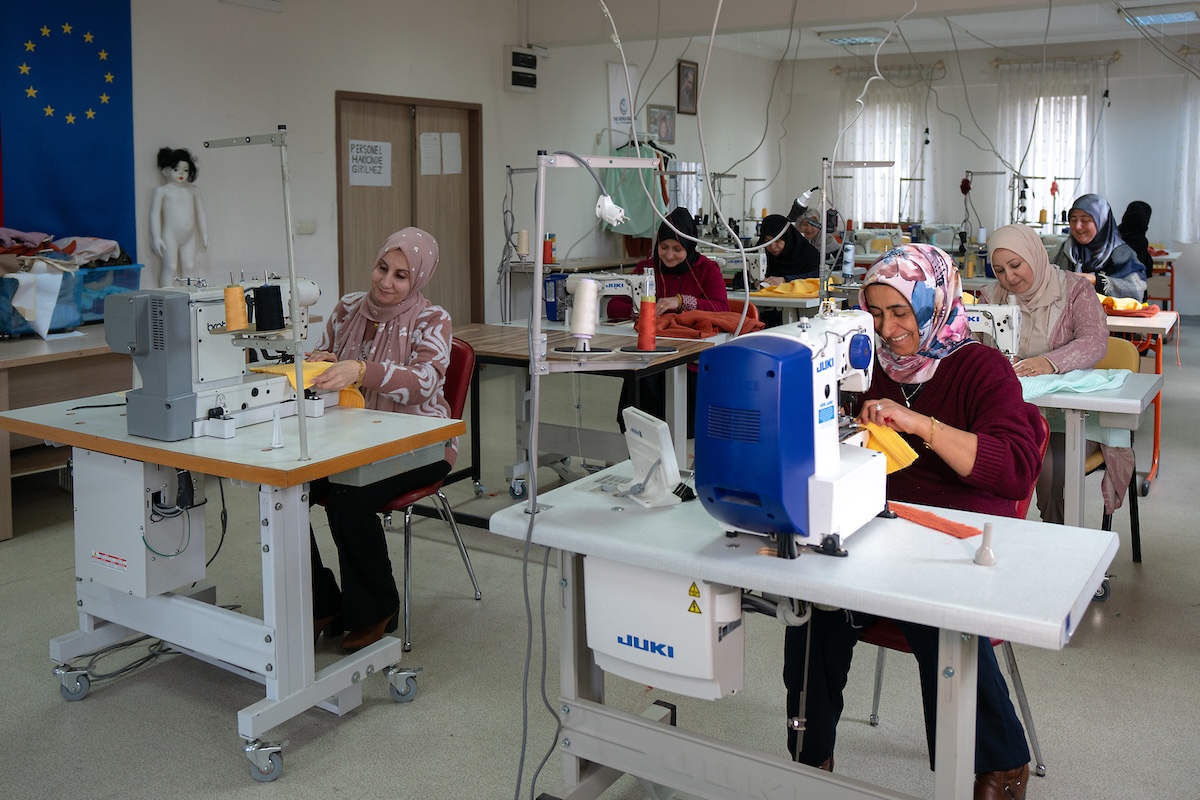Why Turkey Experts Got the Election All Wrong
After a long day, night, and early morning last Sunday and Monday, Turkey’s Supreme Election Council declared that the hard-fought and much-anticipated presidential election would go to a runoff on May 28. Neither incumbent President Recep Tayyip Erdogan nor his main challenger, Kemal Kilicdaroglu, garnered more than 50 percent of the vote, so they will do it all over again. The odds are that Erdogan has the advantage going forward and will extend his two-decade-long leadership for another five years.
After a long day, night, and early morning last Sunday and Monday, Turkey’s Supreme Election Council declared that the hard-fought and much-anticipated presidential election would go to a runoff on May 28. Neither incumbent President Recep Tayyip Erdogan nor his main challenger, Kemal Kilicdaroglu, garnered more than 50 percent of the vote, so they will do it all over again. The odds are that Erdogan has the advantage going forward and will extend his two-decade-long leadership for another five years.
It was not supposed to be this way, at least according to a fair number of professional Turkey watchers and observers. This was the moment when the man who some refer to as “Turkey’s Gandhi”—leading a disparate coalition of alleged social democrats, nationalists, technocrats, and Islamists—was supposed to knock off Erdogan, the man who tanked Turkey’s economy and its democracy. There were a few lonely voices in the Twittersphere warning against irrational exuberance, but the admonition fell on deaf ears even after a leading member of Kilicdaroglu’s coalition, the Iyi Party’s Meral Aksener, bolted briefly in March because she did not think he could win. (More people should pay attention to her.)
As far as errors go, blowing the election predictions did not have tragic consequences. No one dies as a result, but many of the people who are supposed to have insight into Turkey created an expectation that Kilicdaroglu could beat Erdogan. There is no need to exact pounds of flesh for this error, but it would compound the mistake if no one seized the opportunity to take stock. It’s only if analysts hold themselves accountable for their mistakes that they can be expected to better interpret the world for policymakers, journalists, and the general public.
So, what happened? There was altogether too much focus on polls, too much Twitter navel-gazing, too much cheerleading, and too little attention to Erdogan’s advantages and Kilicdaroglu’s weaknesses. After two decades in charge, the president could instrumentalize the power of the state, leverage a friendly media landscape, and play Turks against each other with politically potent messages about identity. In fact, it is a credit to Kilicdaroglu that he did as well as he did against such odds, but making a good show of it was not the preferred narrative among Turkey experts. Instead, they hammered away at the idea that Kilicdaroglu was well-positioned to win.
This was evident in the numerous op-eds, articles, podcasts, and television segments among seasoned policy analysts that drove the line that Kilicdaroglu’s victory was not just possible but the likely outcome of Sunday’s vote. For example, Medyascope is a Turkish internet-based television outlet that has a reputation for journalistic independence, but it lost its critical perspective some time before the elections. A variety of its programming featuring established Turkish analysts went on the airwaves explaining that Kilicdaroglu was the next president.
We all get things wrong, but what was as troubling as the faulty pro-Kilicdaroglu analysis that experts offered was the way they dismissed more cautious observers as pessimists. Unless analysts, especially those who are Turks or of Turkish origin, were unequivocally convinced of Kilicdaroglu’s victory, they were dismissed as either being uninformed or pursuing a pro-Erdogan agenda. Those who approached Sunday’s election with caution did not do so out of bad faith, but rather out of recognition that authoritarians are often resilient. Erdogan has proved himself capable of just about anything to remain in power, and the opposition confronted significant obstacles to victory.
There are some basic rules that the Turkey-watching world should apply going into the second round and, more generally, going forward. First, hope is not analysis. Like many commentators who said that Donald Trump could not win, the analysts who believed Kilicdaroglu would win were allowing their own biases and beliefs to form their analyses. It is a big no-no to read what one wants to read into events, which is why experts need to expand their universe beyond their immediate spheres of colleagues, friends, and family. Second, polling is increasingly unreliable. In the weeks leading up to the vote, most polls showed Kilicdaroglu with a significant lead. That turned out to be wrong, even if the government and Erdogan played dirty.
Third, pocketbook issues are important, but identity may be more important. This is controversial because elections are often framed based on whether people feel like they are better off now, which suggests that people vote based on their economic interest. We know that is not true. Maybe we should change the question or expand our understanding of how and why people answer the question. It is possible that a voter or voters may have less in their wallet but feel more secure as pious Muslims because of Erdogan’s policies. In that sense, they may very well be better off than before. Finally, there is no wisdom of the crowds on Twitter because the platform—or any given person’s timeline—is not as diverse or varied as it may seem.
There remain serious questions about whether large numbers of ballots were ever counted and the way Erdogan used the state to his advantage to gain the runoff. The Organization for Security and Cooperation in Europe concluded that the administration of the vote was “lacking transparency” and criticized both media bias and “limitations to freedom of speech” in the lead-up to the vote. All of this is no doubt true, but it is also not the entire story in Turkey. Against bad economic times, a devastating earthquake, and an invigorated opposition, Erdogan remains popular, and his message about piety, power, and prosperity continues to resonate.
It is worth understanding these factors and incorporating them into our collective understanding of the political dynamics that led to Sunday’s result. To do otherwise would be a disservice to our community and the people who look to us for wisdom on all things Turkey. Without taking stock, we can’t learn anything, and if we don’t learn from this episode, we are just people on Twitter with opinions.



